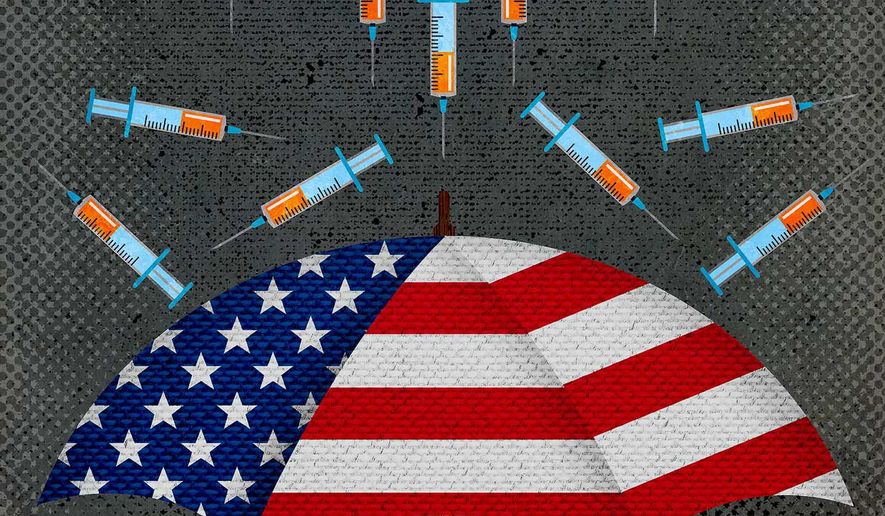OPINION:
An autumn chill always precedes the annual period of cold-weather maladies. It was during such a season four years ago that murmurings of a fearful coronavirus disease arose, the memories of which are still fresh.
Even though the updated COVID-19 vaccines are “safe, effective and free,” according to assurances of public-health officialdom, Americans aren’t buying it, refusing to roll up their sleeves any more.
“CDC recommends everyone 6 months and older get an updated COVID-19 vaccine to protect against the potentially serious outcomes of COVID-19 illness this fall and winter,” reads a recent advisory from the U.S. Centers for Disease Control and Prevention (CDC).
The government agency reported that as of Nov. 17, a vanishingly small 5.4% of Americans had received the recently released 2023-24 COVID-19 jab. Even the vulnerable 65-plus cohort only logged a 31.7% vaccination rate. By contrast, 35.1% of the population has accepted inoculation for the seasonal flu.
Americans are likely turning down the updated vax because, while indeed free, the claim that the injections are “safe” remain unconvincing. The U.S. database that tallies claims of adverse reactions after vaccines were administered contained more than 1 million reports as of Oct. 27, including 21,541 deaths. By contrast, 1.26 million adverse events have been registered as likely associated with all other vaccines administered since 1900, with about half the deaths at 11,673.
Moreover, questions have emerged as to whether the VAERS operation has been sufficiently staffed to manage the explosion of COVID-era adverse reports. The office had been receiving about 60,000 reports annually pre-pandemic, but total reports exceeded 1 million in 2021, and an additional 600,000 have been recorded since, according to an investigation published this month by BMJ, publishers of the influential British medical journal.
As of Nov. 2022, the CDC’s Immunization Safety Office, of which VAERS is a part, employed “70-80 full-time equivalent workers,” reports BMJ. Reviewing Freedom of Information Act documents, investigators found that vaccine manufacturer Pfizer “has around 1,000 more full-time employees working on vaccine surveillance than the CDC, despite the latter’s responsibility for handling adverse event reports on all products.” If the federal apparatus for logging vaccine-related health problems is indeed short-staffed, Americans might not be receiving the comprehensive accounting of vax safety they deserve.
At the same time, many have experienced their own disappointment with the COVID-19 shots. As of July, 77.5% of Americans had at least one infection with the disease, reported the CDC, despite 81.4% of the population being double-vaxxed. While the vaccines may have succeeded as remedies that mitigate the severity of disease, as infection preventatives, they have certainly failed.
The entire pandemic ordeal has made Americans more skeptical than ever of their government. A recent Pew Research Center survey finds the proportion of respondents who say they trust the feds to do what is right at 16% is at its lowest point since 1958.
Faced with public-health proclamations regarding vaccine safety and effectiveness that don’t ring true, and with questions about the accuracy of vax adverse events records, most Americans apparently would rather take their chances with reinfection than with reinoculation.
Update: This editorial has been updated to better describe the U.S. system for reporting adverse reactions to vaccines.
For more information, visit The Washington Times COVID-19 resource page.




Please read our comment policy before commenting.